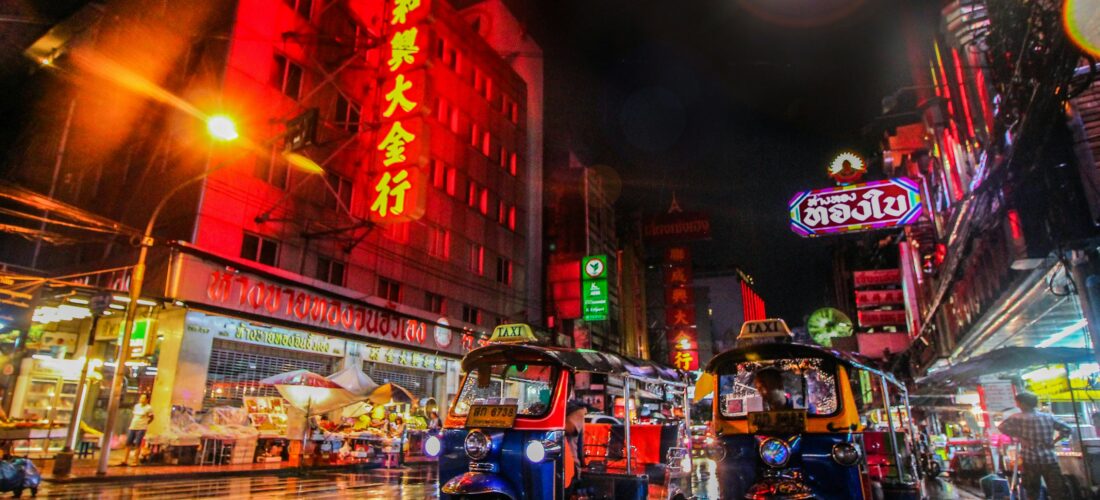The allure of Thailand for digital nomads is undeniable. Imagine this: turquoise waters lapping at pristine beaches, vibrant cities buzzing with energy, and delicious street food tantalizing your taste buds – while you try to get to inbox zero with a stunning view. Thailand truly offers the perfect blend of work, play, and affordability, making it a top destination for remote workers and digital nomads worldwide.
But just how many digital nomads are there in Thailand? The answer, like many things in life, isn’t as straightforward as a quick Google search. While there’s no definitive number, we can explore various estimates, analyze trends, and delve into the data about the digital nomad population in Thailand.
Estimating the Digital Nomad Population in Thailand
Pinpointing the exact number of digital nomads in Thailand is a challenge. Many nomads work remotely on tourist visas, making them technically “tourists” rather than officially registered workers. However, various sources provide valuable insights:
- Social Media Buzz: Platforms like Instagram paint a vibrant picture. A study by Resume.io analyzing geotagged Instagram posts with the #digitalnomad hashtag placed Thailand as the third-highest country globally, with over 124,729 posts. Bangkok alone boasted an estimated 20,247 #digitalnomad posts.
- Nomad Community Growth: Anecdotal evidence from co-working spaces, online forums, and nomad communities points to a significant and ever-growing digital nomad population in Thailand.
- Industry Reports: Reports from organizations like MBO Partners estimate that Southeast Asia is home to over 1.7 million remote workers, with Thailand being a major player.
While these figures don’t provide a definitive number, they paint a clear picture: Thailand is a major digital nomad hub, attracting thousands, if not tens of thousands, of remote workers year-round.
Why do Digital Nomads Choose Thailand?
So, what makes Thailand so appealing to digital nomads? Here are some key factors:
- Affordability: Thailand offers a relatively low cost of living compared to Western countries. From delicious meals everywhere you go to comfortable accommodation, your budget can stretch further, allowing you to live comfortably while working remotely.
- Infrastructure and Connectivity: Major cities like Bangkok, Chiang Mai, Phuket and Koh Lanta boast excellent internet infrastructure, co-working spaces, and cafes with reliable Wi-Fi. Staying connected and productive is a breeze.
- Cultural Tapestry: Thailand’s rich culture, stunning landscapes, and vibrant cities offer endless opportunities for exploration. From exploring ancient temples to diving in coral reefs, your free time is guaranteed to be an adventure.
- Nomad-Friendly Vibe: Thailand has embraced the digital nomad trend. Many co-working spaces cater specifically to remote workers, and the local population is generally welcoming and open to different lifestyles.
Beyond the Numbers: Exploring the Digital Nomad Ecosystem in Thailand
The number of digital nomads in Thailand isn’t just a statistic – it represents a thriving ecosystem. Here’s a glimpse into what you can expect:
- Co-working Spaces: Major cities boast a diverse range of co-working spaces catering to digital nomads. These spaces offer dedicated work environments, networking opportunities, and a sense of community.
- Online Communities: Facebook groups, online forums, and apps like Fairytrail connect digital nomads in Thailand. These platforms provide valuable resources, support, and a chance to connect with like-minded individuals.
- Events and Meetups: Thailand’s digital nomad scene is active, with regular events and meetups focused on networking, workshops, and simply socializing with fellow remote workers.
Pro Tip: Use the Fairytrail app to connect with other digital nomads in Thailand before you even arrive. Find co-working spaces, discover hidden nomad hotspots, and start building your remote work network!
Is Thailand Right for You?
Thailand offers a fantastic opportunity for digital nomads seeking a vibrant, affordable, and beautiful location to work remotely. But is it right for you? The decision depends on your individual needs and preferences. Consider factors like your budget, preferred work environment, and desired level of cultural immersion.
While Thailand doesn’t currently offer a dedicated digital nomad visa, there are options for remote workers to stay for extended periods. This includes tourist visas (with limitations on work), mid-term visas, like the Smart Visa, and residence permits like the Long Term Residence Visa (for extended stays).
Bonus Tip: Learn a few basic Thai phrases before you go! It goes a long way in showing respect for the local culture and can enhance your overall experience. And don’t forget to download the Fairytrail app to find other digital nomads, remote workers and travel friends in Thailand and beyond.



